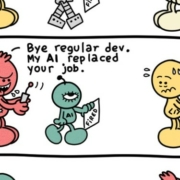In today’s digital age, there are a variety of job roles related to software engineering and cloud computing. From Site Reliability Engineers to DevOps Engineers, each role has its own unique set of responsibilities and skills. In this article, we will compare four different job roles: Site Reliability Engineer, Software Engineer, Cloud Engineer, and DevOps Engineer. We will discuss the similarities and differences between these roles, as well as the skills and qualifications needed to be successful in each.
In this article, we will compare and contrast these roles and their functions.
In this article, we will discuss the differences between these roles and their functions.
Software Engineer
Software engineers are responsible for designing, developing, and testing software applications. They are also responsible for debugging and maintaining existing software. They use programming languages such as Java, Python, and C++ to develop software applications.
DevOps Engineer
A DevOps engineer is responsible for automating the software development process. They are also responsible for setting up the infrastructure and deploying applications. They use tools such as Jenkins, Ansible, and Docker to automate the software development process.
Testing
Testing is an integral part of software engineering. Software engineers are responsible for writing automated tests to ensure that the software application is functioning as expected. DevOps engineers are responsible for setting up the test environment and running automated tests. Site reliability engineers are responsible for monitoring the performance of the application and ensuring that it meets the required standards. Cloud engineers are responsible for testing the application in the cloud environment and ensuring that it is secure and reliable.











